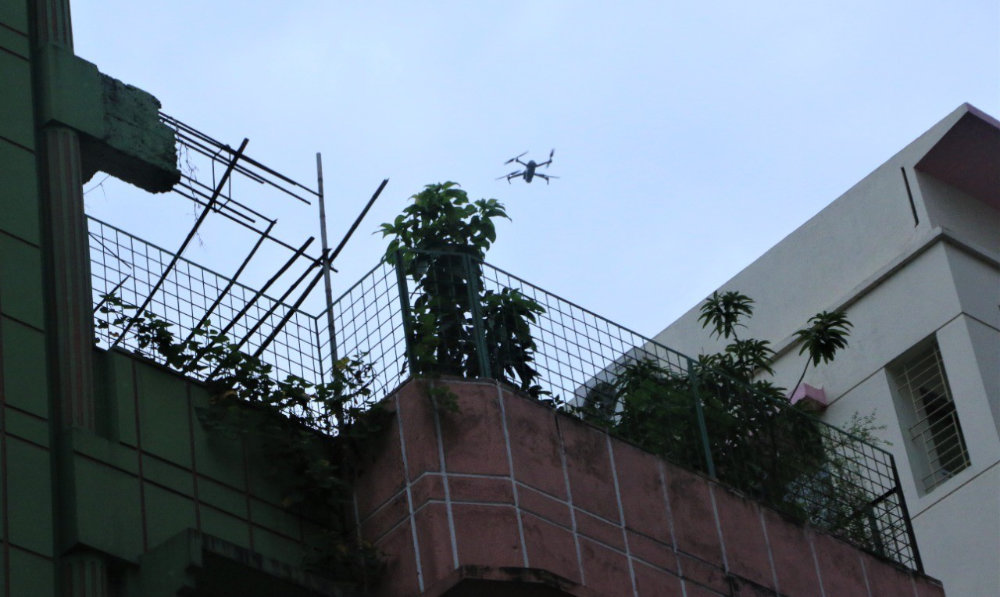DHAKA: Facing an annual outbreak of dengue fever, the administration of Dhaka has introduced a fleet of drones to monitor the city for potential breeding sites of disease-spreading mosquitoes.
Hot, humid and crowded, Bangladesh’s sprawling capital struggles with swarms of mosquitoes due to its climate and unplanned urbanization.
The breeding of insects becomes a major health concern during the monsoon season between June and September, when thousands of Dhaka residents contract dengue, a viral and potentially deadly disease transmitted to humans by mosquitoes of the genus Aedes, which breed in freshwater pools and rain drains.
The disease used to be rare in Bangladesh in the 1960s, but for the past two decades its incidence has increased dramatically and in 2019 — the worst dengue outbreak year in the country’s history — more than 100,000 cases were reported across the country, mainly in Dhaka.
This year alone, already more than 1,300 people have been hospitalized with dengue in the Bangladeshi capital, while the monsoon season is not even in full swing yet.
To contain the outbreak, the Dhaka North City Corporation, which governs about 80 percent of the Bangladeshi capital’s 22 million people, last week deployed 10 drones to monitor residential areas for containers with standing water, where Aedes mosquitoes could breed.
“Fresh rainwater is logged on the rooftops during monsoon and becomes an ideal breeding place for the Aedes mosquitoes. That’s why we opted for drone flying to identify the Aedes breeding grounds in the city,” Brig. Gen. Mohammad Zobaidur Rahman, chief health officer of Dhaka North City Corporation, told Arab News on Wednesday.
The drive started on July 2 and will run until the whole city is mapped.
Based on drone footage, administration officials identify spots with stagnant water and visit the sites to assess if they are hazardous.
“We take still photos and videos of rooftops if there’s found to be a dengue (mosquito) breeding place. Later on, our team visits those buildings in person and takes steps to clean the premises,” Rahman said. “It’s a very time saving and effective method, as we can monitor a huge area within a short span of time.”
Data obtained from drones is going to serve for future dengue-prevention efforts.
“In this way we are also making a database of every building in the city, which will make things easier for us in the next few years,” Rahman said. “Our aim is to make people aware about dengue breeding grounds. We don’t want to penalize people. This drone flying has already brought some positive results. People have taken it very positively and in many cases are spontaneously cleaning their premises before our staffers reach their buildings.”
While the flying of drones might raise concerns over privacy and surveillance, some residents see it as essential in addressing the dengue threat.
“People have a tendency to ignore their social responsibilities,” Enamul Huq, a 47-year-old resident of the Uttara area said. “I think the local representatives of the city corporation should play a more active role in accelerating the ongoing drive against dengue.”
For Ishrat Jahan, a 32-year-old from the Gulshan area, monitoring should be expanded to waste management in the city, where half of trash is uncollected, adding to problems with pollution.
“We live in this city and it’s our collective responsibility to keep the city clean and livable,” she told Arab News. “With drone flying, now the city’s dwellers will also find themselves under monitoring and come forward to clean their own buildings, and localities.”




